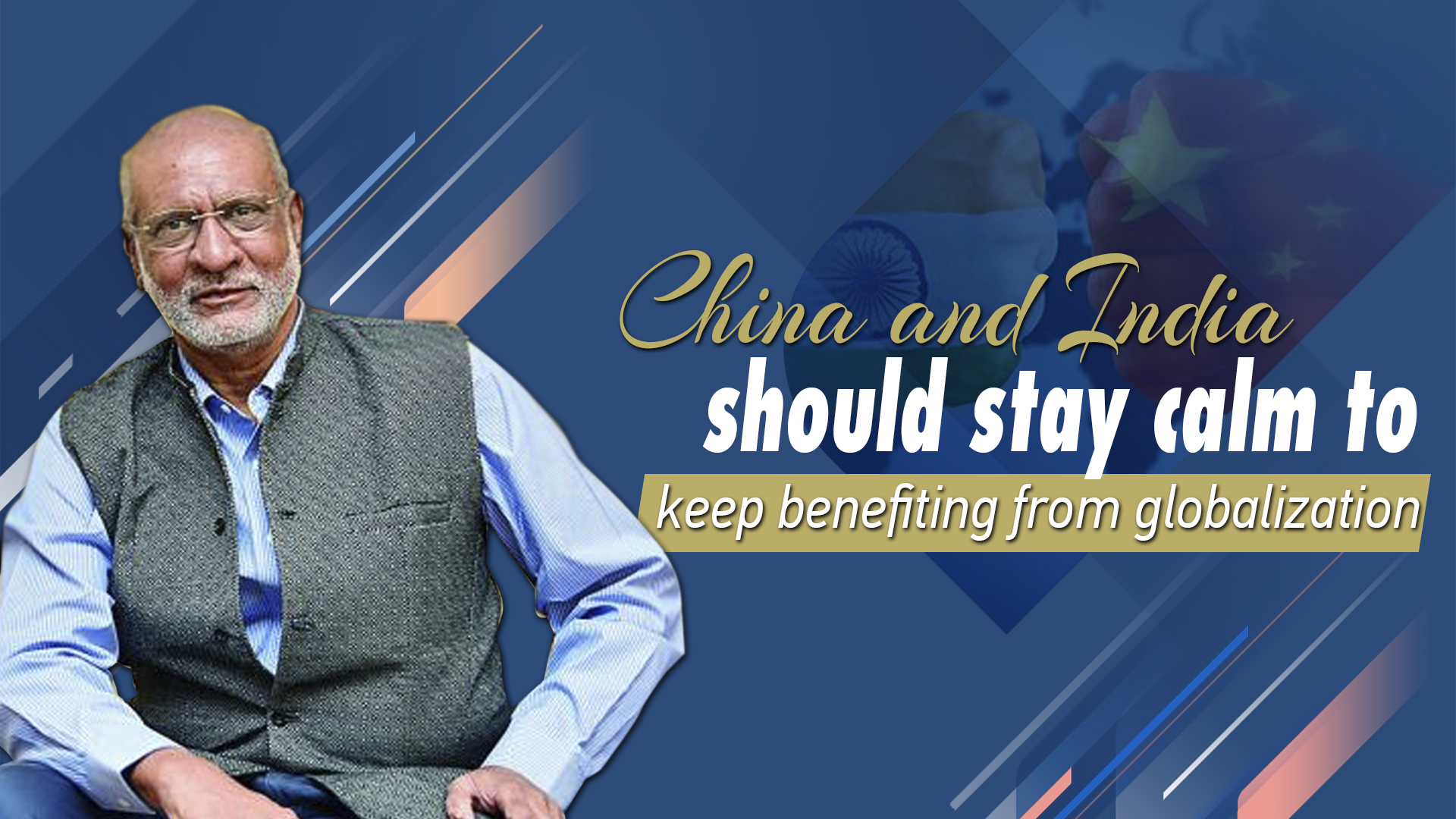03:03

Editor's note: The ongoing China-India military standoff in the western sector of their Himalayan border spilled over onto their trade relations recently. On June 29, India banned 59 Chinese mobile apps, including Bytedance's extremely popular Tik Tok and Tencent's WeChat, citing national security and privacy concerns. Mohan Guruswamy, a policy analyst on economic and security issues, shares his views with an Indian perspective on the topic. The opinions expressed in this video are his, and not necessarily those of CGTN.
CGTN: Ban on Chinese apps: Privacy concerns or linked to border tensions?
Guruswamy: Every platform, which we have from all over the world, even Indian platform, collect a lot of data. They want to know who you are, where you are, and that provides the basis for their advertisement. Like Facebook, Google, Twitter, all these people collect data. So, the fact that even TikTok collects data is not surprising.
But that act of it right now is obviously connected to what's happening in Galwan, and Pangong Tso (in the disputed border area). The reaction to that has been pretty severe in India, and Indian public expects the Modi government to be doing something about it.
As a matter of fact, even before they did anything, various entities were cancelling their contracts on supply, and on big construction projects. What's this TikTok is very small, it's about 100 crores (one billion Indian rupees) a year; but bigger projects have been cancelled.
CGTN: Will India follow the U.S. in barring Huawei from its 5G rollout?
Guruswamy: India will not follow the U.S. on this. India will make its own judgement call, and I can see it happening that could probably be the next step because, after all, the Modi government has to respond to Indian public opinion also. There's trust deficit, and there would be questions about Huawei.
CGTN: Wouldn't India gain by China's experience in manufacturing?
Guruswamy: It will definitely benefit India. If Chinese manufacturing comes to India, one will realize that it's probably cheaper to make those fans we're making in China and make them in India, better to make washing machines in India and all these things, because there's a large market. This is going to be the largest middle-class market in the world.
It's best for both countries to continue this regime of investing in each other, talking to each other, buying each others' goods, not being xenophobic about each other. And that is when you know both governments have a responsibility.
You can't have a situation where both the countries are squabbling very publicly and killing each other and to expect trade to be normal, and you know business to be done under conditions of bonhomie.
In India, people and our leaders and again and again said "we would like to see open markets, free market, and money coming in and going out freely." Just as China benefits from globalization, India's also benefiting by it now slowly, but much behind China; but we are benefiting by it.
After all, our IT sector has benefited by globalization. So, it is hoped that this global order can continue instead of being disrupted.
Interviewer: Abhishek G Bhaya
Graphic design: Li Yueyun
Video editing: Liu Shasha
Managing editor: Li Yunlong
Senior producer: Wei Wei
Managing director: Mei Yan
(If you want to contribute and have specific expertise, please contact us at opinions@cgtn.com)